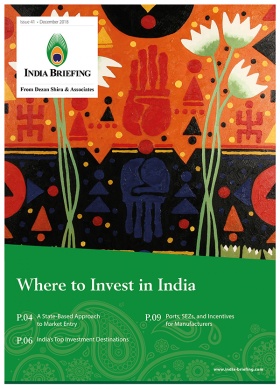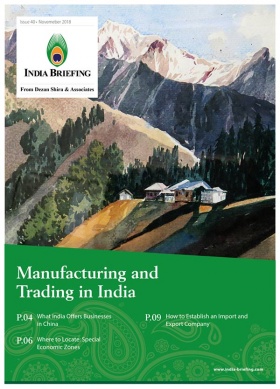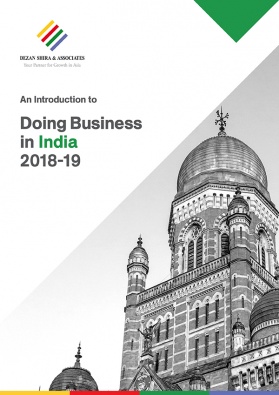SMEs and Startups in India’s Waste Sector
Editor’s Note: This is the second article in a three part series. The first can be found here and the third can be found here.
In 2014, the Modi government identified cleaning up India as a national concern through the Swachh Bharat Abhiyan (Clean India Movement). Though the Clean India Movement has yet to be followed up with comprehensive policies, the initiative invigorated national attention towards finding solutions to India’s overloaded waste management systems.
Startups and small and medium enterprises (SMEs) have already begun to profit from effective waste management. Furthermore, with the planned creation of 100 smart cities in India, getting involved in effective waste management solutions will position companies and investors to benefit from India’s planned industrialization in the near future.
In part two of this three part series, we track the innovative work startups and SMEs have done in India’s waste management sector. We also highlight how foreign companies and investors can play a role in making India’s waste management more effective and sustainable. In the third and final instalment of this series, we explore the investment potential of waste management in relation to India’s Smart Cities Mission.
Startups: Decentralizing waste management
Startups have been successful in offering waste processing solutions directly to waste producers, be they residential units or companies.
Startups focused on sustainable waste management are helping to decentralize waste handling and treatment while also ushering in a cultural shift in understanding the importance of segregating waste at home. Decentralized models maximize the efficiency of waste collection and processing. Changing residential and commercial mentalities about segregating waste establishes new, long-term potential for more effective waste solutions more generally.
Below are some of the achievements by startups in waste management:
- Digitizing household garbage and recycling collection; offering reliable and transparent paid garbage collection alternatives;
- Bringing informal garbage collectors into the formal sector; utilizing their existing networks;
- Refurbishing e-waste and selling it further down the value chain;
- Producing household and industrial sized compost units;
- Providing waste audit services; and
- Creating digitized networks to collect compostable and reusable materials.
SMEs: Professionalizing waste management
Indian SMEs dealing with waste management have focused on the industrial processing of waste – recycling, producing fuel from municipal waste, or large-scale composting. SMEs also look to professionalize informal networks of waste collection on a larger scale than startups.
Pastiwalla, a paper recycling company in Gujarat, for example, employs over 500 garbage collectors to visit half a million households in four cities. Professionalizing informal garbage workers – derogatively referred to as ‘rag pickers’ – will help initiate a cultural shift in how garbage is perceived in India. This will in turn enable greater innovation in terms of how garbage is collected and processed.
Below are some of the achievements by SMEs in waste management:
- Professionalizing informal waste sectors;
- Conversion of municipal waste into fuel on a large scale;
- Recycling plastics into polyester yarns that can be resold for both consumer and industrial packaging;
- Collecting and treating municipal waste;
- Collecting and treating industrial waste; and
- Processing biomedical and other hazardous wastes.
Challenges: Sorting through trash
Segregating waste
Perhaps the biggest challenge all stakeholders in India’s waste management industry face are dismal segregation practices. The Solid Waste Management Rules, 2016 dictate that all waste must be segregated into three categories at source: wet, dry, and hazardous. However, these rules are poorly enforced. Moreover, both informal and formal waste collectors often lack the proper resources to segregate waste.
Segregating waste means optimizing its market potential. Initiating shifts in waste producers’ mentality towards separating waste and empowering those collecting it, will translate into higher productivity and efficiency.
Corruption
Waste management is a lucrative business, and many municipal bodies get accused of corrupt practices and favoritism in handling garbage contracts.
In Bengaluru, for instance, a near-decade long issue with waste collection persists due to what residents and local media call the ‘garbage mafia.’ Waste collectors operating in the Bruhat Bangalore Mahanagara Palike (BBMP) are notorious for incomplete collection services and excessive billing.
Local media have even reported instances of the garbage mafia issuing threats to residents who opt for private collection. The garbage mafia has also been accused of ousting a politician working against them.
Such entrenched corruption is a major barrier to rationalizing waste management. However, private sector involvement in waste management – especially in decentralizing waste processing and treatment – can help urban local bodies (ULBs) break free of corrupt nexuses. Large amounts of funding funneled out of public waste management schemes can be redirected back into the system through private partnerships.
Creating a sustainable industry
India’s regulatory landscape is increasingly opening up to foreign investors and companies in waste management. ULBs should reach out to the private sector to create sustainable and efficient waste management plans.
Foreign companies looking to become a part of India’s growing waste management industry need to come up with a comprehensive plan suited to the country’s waste issues. Below are some key steps to be considered:
- Professionalize existing yet informal networks of garbage collection;
- Use digital technologies to precipitate a shift in mentality about segregating garbage;
- Identify and partner with startups utilizing innovative technology to process and treat waste; and
- Focus on decentralized methods of waste collection and treatment to maximize efficiency and avoid corrupt practices.
About Us
India Briefing is produced by Dezan Shira & Associates. The firm assists foreign investors throughout Asia and maintains offices in China, Hong Kong, Indonesia, Singapore, Vietnam, and Russia.
Please contact india@dezshira.com or visit our website at www.dezshira.com.
- Previous Article The Waste Management Industry in India: Investment Opportunities
- Next Article Waste Management Opportunities in India’s Smart Cities










